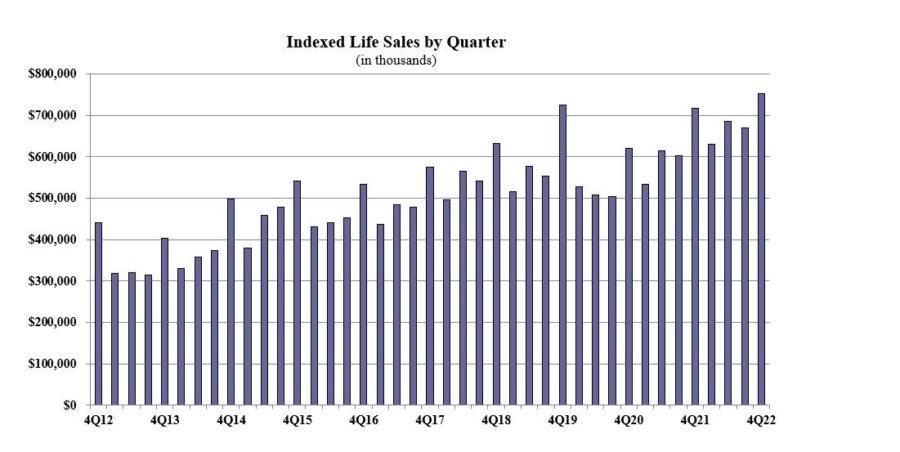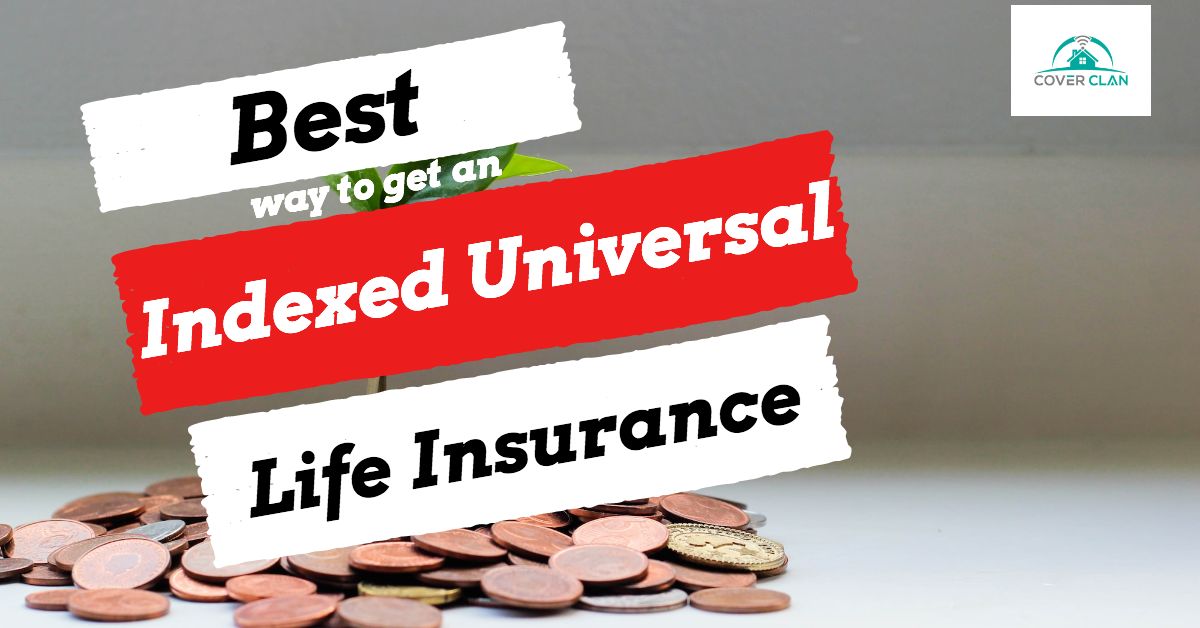All Categories
Featured
Table of Contents
Do they compare the IUL to something like the Vanguard Total Amount Stock Market Fund Admiral Shares with no lots, a cost proportion (EMERGENCY ROOM) of 5 basis points, a turnover ratio of 4.3%, and a phenomenal tax-efficient record of circulations? No, they compare it to some terrible proactively handled fund with an 8% load, a 2% ER, an 80% turnover proportion, and an awful record of short-term funding gain circulations.
Mutual funds often make yearly taxable distributions to fund proprietors, also when the value of their fund has gone down in worth. Shared funds not just require revenue coverage (and the resulting annual taxes) when the shared fund is going up in worth, yet can also enforce income taxes in a year when the fund has dropped in worth.
That's not just how common funds work. You can tax-manage the fund, collecting losses and gains in order to reduce taxed circulations to the financiers, however that isn't in some way mosting likely to change the reported return of the fund. Just Bernie Madoff kinds can do that. IULs prevent myriad tax obligation traps. The possession of mutual funds might call for the mutual fund owner to pay estimated tax obligations.

IULs are easy to position so that, at the owner's death, the recipient is exempt to either income or estate tax obligations. The very same tax decrease methods do not function almost as well with common funds. There are countless, typically pricey, tax traps associated with the timed acquiring and marketing of mutual fund shares, traps that do not relate to indexed life insurance policy.
Possibilities aren't really high that you're going to undergo the AMT due to your common fund circulations if you aren't without them. The rest of this one is half-truths at best. While it is true that there is no earnings tax obligation due to your successors when they acquire the proceeds of your IUL policy, it is additionally real that there is no revenue tax due to your successors when they acquire a shared fund in a taxed account from you.
Mutual Of Omaha Universal Life Insurance
The federal estate tax obligation exemption limitation mores than $10 Million for a couple, and growing yearly with inflation. It's a non-issue for the huge majority of doctors, a lot less the remainder of America. There are better methods to prevent estate tax obligation concerns than getting investments with reduced returns. Shared funds may create income taxes of Social Safety and security advantages.

The growth within the IUL is tax-deferred and may be taken as tax cost-free income by means of lendings. The policy proprietor (vs. the mutual fund manager) is in control of his or her reportable earnings, thus allowing them to decrease or perhaps remove the tax of their Social Security benefits. This one is excellent.
Below's one more very little issue. It holds true if you buy a common fund for say $10 per share prior to the circulation date, and it distributes a $0.50 distribution, you are then going to owe taxes (probably 7-10 cents per share) although that you have not yet had any kind of gains.
In the end, it's actually regarding the after-tax return, not exactly how much you pay in taxes. You are going to pay even more in taxes by using a taxed account than if you acquire life insurance policy. But you're also probably mosting likely to have more cash after paying those taxes. The record-keeping needs for having mutual funds are significantly more complicated.
With an IUL, one's records are maintained by the insurance provider, duplicates of yearly declarations are mailed to the proprietor, and circulations (if any type of) are totaled and reported at year end. This one is also type of silly. Naturally you should maintain your tax documents in situation of an audit.
Universal Term Life Insurance
All you have to do is shove the paper into your tax obligation folder when it shows up in the mail. Rarely a reason to get life insurance policy. It's like this person has actually never ever spent in a taxed account or something. Shared funds are typically part of a decedent's probated estate.
Additionally, they go through the hold-ups and expenses of probate. The profits of the IUL policy, on the other hand, is always a non-probate distribution that passes outside of probate straight to one's named beneficiaries, and is as a result not subject to one's posthumous creditors, undesirable public disclosure, or similar hold-ups and prices.
Medicaid disqualification and life time revenue. An IUL can offer their owners with a stream of earnings for their entire life time, no matter of how lengthy they live.

This is beneficial when arranging one's affairs, and transforming possessions to earnings before a nursing home confinement. Mutual funds can not be transformed in a similar fashion, and are nearly constantly taken into consideration countable Medicaid possessions. This is another silly one advocating that inadequate people (you know, the ones who need Medicaid, a government program for the poor, to pay for their retirement home) need to make use of IUL rather of shared funds.
Eiul Policy
And life insurance policy looks awful when contrasted relatively against a retired life account. Second, people who have cash to get IUL over and past their pension are mosting likely to need to be awful at handling money in order to ever get Medicaid to spend for their nursing home costs.
Chronic and terminal ailment motorcyclist. All policies will enable an owner's very easy access to money from their policy, often waiving any type of surrender fines when such people endure a major ailment, require at-home care, or come to be restricted to a retirement home. Common funds do not supply a comparable waiver when contingent deferred sales costs still put on a shared fund account whose proprietor requires to sell some shares to money the prices of such a remain.
What Is The Difference Between Universal And Term Life Insurance
You get to pay even more for that benefit (cyclist) with an insurance policy. Indexed global life insurance coverage offers fatality advantages to the recipients of the IUL owners, and neither the proprietor neither the beneficiary can ever before lose cash due to a down market.
Now, ask yourself, do you actually require or want a fatality benefit? I absolutely do not require one after I get to financial self-reliance. Do I desire one? I suppose if it were economical enough. Obviously, it isn't affordable. On standard, a buyer of life insurance policy pays for truth expense of the life insurance policy benefit, plus the prices of the plan, plus the profits of the insurer.
Maximum Funded Life Insurance
I'm not completely certain why Mr. Morais threw in the entire "you can not shed cash" again right here as it was covered quite well in # 1. He just wanted to duplicate the most effective marketing factor for these points I suppose. Once again, you don't lose small dollars, but you can lose genuine bucks, in addition to face major chance cost because of low returns.

An indexed universal life insurance policy proprietor might trade their policy for a totally different policy without setting off revenue taxes. A shared fund proprietor can not relocate funds from one shared fund firm to another without selling his shares at the former (therefore causing a taxed event), and repurchasing brand-new shares at the latter, often subject to sales costs at both.
While it is real that you can exchange one insurance policy for an additional, the reason that individuals do this is that the initial one is such a dreadful plan that also after acquiring a brand-new one and going with the very early, negative return years, you'll still come out in advance. If they were sold the right plan the very first time, they should not have any need to ever before trade it and experience the early, unfavorable return years once again.
Table of Contents
Latest Posts
Eiul Life Insurance
Aig Index Universal Life Insurance
Universal Term Life
More
Latest Posts
Eiul Life Insurance
Aig Index Universal Life Insurance
Universal Term Life